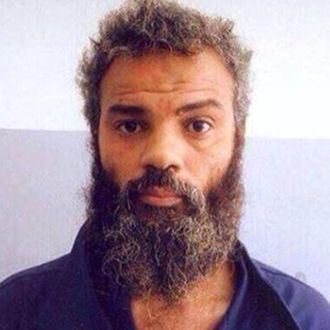
Providing more fuel for the extremely politicized debate over whether the 2012 attack on the U.S. consulate in Benghazi was planned by terrorists or grew out of spontaneous protests, new documents released in the case of Ahmed Abu Khattala, the suspected ringleader captured in Libya last month, make no mention of the anti-Muslim YouTube video that sparked the demonstrations. In court papers filed on Tuesday, federal prosecutors say that Abu Khattala complained about the presence of an American facility in Benghazi several days prior to the attack, and was “motivated by his extremist ideology.” Prosecutors added that he has “repeatedly expressed his hatred of Americans and his efforts to target American and Western interests.”
The document, which is intended to convince a judge that the man the State Department designated as a terrorist shouldn’t be released prior to his trial, provides a brief overview of the case against Abu Khattala. According to the prosecution, on the night of September 11, 2012, “a group of twenty or more armed men” gathered outside the U.S. mission in Benghazi, then “aggressively breached” the gate and set the fire that led to the deaths of Ambassador Christopher Stevens and Information Management Officer Sean Patrick Smith.
The papers claim that Abu Khattala is a leader in Ansar al-Sharia, and many of the initial attackers were part of the terrorist group. After the first attack, Abu Khattala allegedly “entered the compound and supervised the exploitation of material from the scene by numerous men, many of whom were armed.” Then he returned to an AAS camp, where members were assembling for the attack on a second U.S. facility, in which two more Americans were killed. Afterward, Abu Khattala became worried that the U.S. was trying to capture him, and “attempted to obtain various types of equipment, including weapons, to defend himself from feared American retaliation.” He also continued to make unspecified “efforts to target American personnel and property.”
While Abu Khattala pleaded not guilty to a single count of conspiracy “to provide material support and resources to terrorists resulting in death,” last week, the government says its claims are supported by physical evidence and “numerous witnesses.” According to the New York Times, Abu Khattala has not incriminated himself in the killing of the four Americans, but prosecutors say that since his capture he’s given “voluntary statements corroborating key facts.” The conspiracy charge carries a maximum sentence of life in prison, but U.S. officials are expected to add additional charges that carry the death penalty in the coming weeks.






























